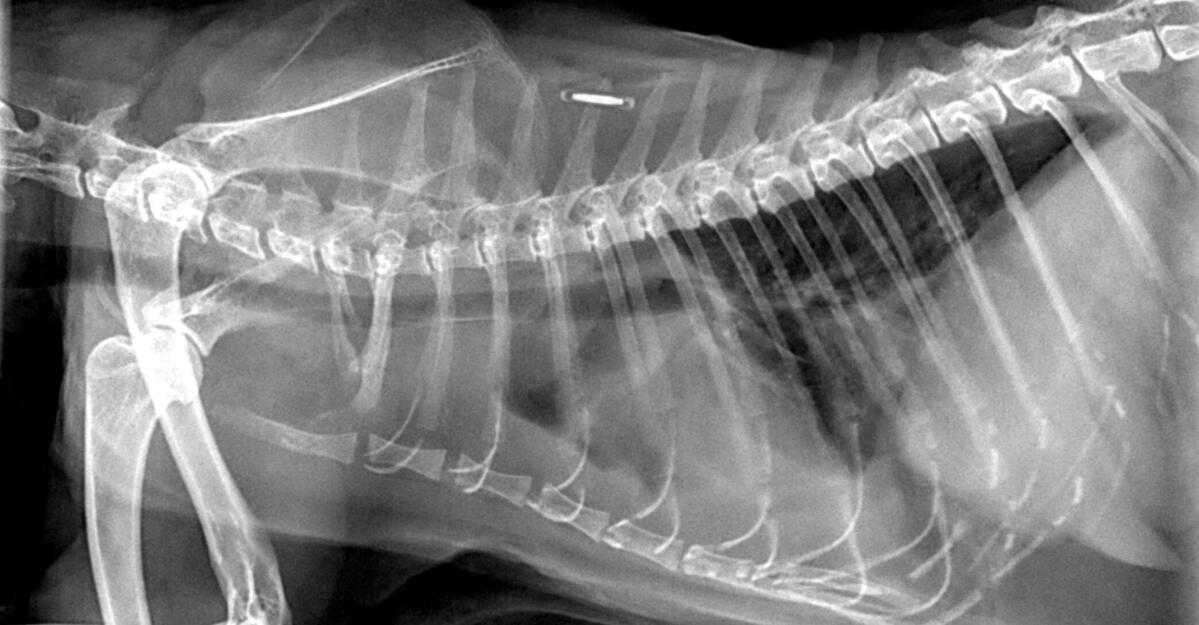Writing a good curriculum vitae (CV, resumé) is essential to increase your employability as a vet in the United Kingdom. A CV should be easy to read and should contain concise information, ideally not exceeding 3 pages. Often CVs are about 2 pages, but any length between 1 and 3 pages can be appropriate. Use concrete language and short sentences; in other words, “get to the pointâ€. Read carefully the tips that we give you from Veterinary Talent to make your CV competitive.
Start with your personal data. Put your name in a larger font than the rest of the CV text. The characters that do not exist in English (ã, ñ, ö, Ä, etc.) can be left or removed, it is optional. For the name and the rest of the resume, use a professional font that reads well, such as Arial, Helvetica, or Calibri. Avoid fonts that are difficult to read, overly decorated, or that look unprofessional. After the name, write your address, your telephone number (including the country code) and your email address. Use as professional an email address as possible. The name that goes before the @ is important; try to make it your name or combinations/abbreviations of your name. In no case should you use names like hellokitty@hotmail.com or batmanforever@gmail.com.
In the CV you must NOT include your photograph or your date of birth. It is considered discriminatory to use age or physical appearance when hiring someone. In the United Kingdom, they take the concept of equal opportunities very seriously and do not decide a position based on the candidate's sex, age, race or physical appearance.

Image from Freepik
Continue with a summary (professional profile) that in 2-3 sentences can give an idea of you to the employer. You can include information about your motivation (e.g. highly motivated), your experience (e.g. 3-year experience in small animal practice), your interests (e.g. with a special interest in dermatology; want to start a RCVS Advanced Practitioner in small animal orthopdedics) and other characteristics that can increase your employability (e.g. confident, easy-going, people skills, team player). Where appropriate, highlight your business skills and good customer service, either in this or in other sections of your CV. This section of the CV (summary) is not mandatory, so you can decide whether or not to include it.
The next section will be your work history (employment history, career summary, professional experience, or experience). For each job you must detail dates you worked, name of the practice and location (city, country). List the jobs you've developed, starting with the most recent. Describe the kind of practice (e.g., large referral small animal hospital; 5-vet practice small animal/ exotics; sole charge busy small practice). Finally, describe your position and the type of work and responsibilities you had. Any achievements should be included (e.g. “I learned and practiced orthopaedic surgery with a diploma holderâ€). Include information on whether you did emergencies (in person or on call) and if you saw referred cases. For example, an excerpt from this part of your CV for one of the jobs you've done might look like this:
XXXX Veterinary Hospital, Warsow (Poland) 05/2019 to current - 5-vet small animal/exotics in urban area. - General practice, with two blocks of 20-min consultations (morning and evening) and one block of surgeries (afternoon), mainly soft tissue. - In charge of ophthalmologic cases when on duty. I have helped to increase the ophthalmology caseload by 60% since 2019. - OOH (2 days/week on average), - 1 day/week sole charge in animal shelter neutering dogs and cats. - Occasional exotics work, mainly medicine and surgery of rabbits. |
Try not to include very general information. Avoid including skills that everybody obtains by attending the vet school or skills that are more typical of the work of veterinary nurses. For example, do not include among your responsibilities, "Blood collection", "Place intravenous catheters" or "Consult", since these are qualities that are understood that every veterinarian must do and do not give relevant information to the employer. Be a little more specific with “Consult†and detailwhat type of consultations, amount of time per clients (e.g. 15-min consultations), if they were only for small animals or if you also saw exotics, etc. Where applicable, provide details on the amount of time you were alone in the practice (for example: “30% sole charge, 70% 2-vets on dutyâ€). Try to highlight extra knowledge that not all veterinarians have (e.g. “Proficient in ultrasound, including echocardiographyâ€).

For each job, list some of the responsibilities you held, including interests or specialisations such as exotics, ophthalmology, diagnostic imaging, etc.
It is important to explain any significant gap of time that may have occurred between two jobs. That is, the employer may find unusual that you finish a job and start the next one a year later; it is important to explain what you have done during that year (for example, you have been studying English, caring for a sick family member, embarking in a business not related to veterinary medicine, etc.).
You should never lie in your CV. Although experience will be valued by employers, lying about your experience is an unnecessary mistake that may jeopardise your future career as a vet in the UK. British practices are very happy to accept recent graduates and therefore there is no need to falsely and artificially increase your experience. If you are a recent graduate and you still do not have professional experience (you have never had an employment), then you may develop a bit more the section Externships, placements and practical experience. Include in which places and in which areas of knowledge you have done externships, what has been your main area of interest, what have you done to develop yourself in that area and, above all, what techniques or skills have you acquired. Remember that during your studies at the vet school you can also gain experience. In addition, if you are already a vet with some years of experience, but want to indicate some places where you have done
externships, you can do so.
If you have done many externships in many different places, try to select only a few, especially those that are more relevant to the kind of job offers you are applying to, those in which you learned a series of techniques, those where you worked along a diploma holder or those undertaken in English-speaking countries (and especially if you have been to the UK). For example, if you are looking for a job in a small animal practice, an externship caring for elephants in Cambodia may not provide relevant information to the employer, unless during that externship you communicated in English and wanted to highlight it. Make sure you are able to differentiate between your holidays and your professional externship. Keep in mind a basic principle in business: "Nobody is going to pay you for your dreamsâ€, which indicates that the most important thing of your CV is what employers perceive as useful for their practice. In a CV, information included that does not add value to your application, it’s actually decreasing your chances of being selected, so make sure you think about what information you want to include.
Something very important is that you never include your employments and your externships together in the same section. The employer wants to clearly see the difference between your (paid) jobs and your externships, as the level of responsibility is not the same. As a general rule, on a CV your jobs are going to be much more important than your externships.
The next section of the CV is education (academic training). Here you must include information about your veterinary degree, if you have developed other important studies, if you have completed a master's degree, if you have a doctorate, etc. If during the degree you have obtained very good grades, you can include this information as a ranking: the ranking of your grades is requested from the university and it is your position with respect to the overall ranking of your graduating class. You do not need to enter information about your primary and secondary education. For example, an excerpt from this part of your resume might look like this:
RCVS Advanced Practitioner in Veterinary Anaesthesia 2021 DVM (veterinary graduate) 2017 School of Veterinary Medicine of Barcelona, Spain Ranking: 19/170 Internship in the Department of Clinical Pathology during 4th and 5th year |
Next you may include a section on professional development, where you highlight some courses taken, research projects, professional awards received, RCVS membership or membership in veterinary or scientific societies/associations. It is very important that in this section you do not lengthen yourself with an endless number of courses taken or talks attended, since it adds very little information to the employer and gives the feeling that you are focusing (and putting too much effort) on a part of the CV that it is actually not that important. In any case, if you have focused a lot on a particular topic (for example, you have taken many courses and have attended talks and conferences on endoscopy), it is better that you summarise it at the beginning of your CV (in the summary section) or you write a short sentence about it in this section of professional development. You will also have the opportunity to indicate this information in the skill matrix (we will explain later what the skill matrix consist of), where you will be asked about your experience in a number of clinical procedures. For all these reasons, this section of professional development is relatively unimportant and many times it is not even included in the CV.
To start finishing your CV, you will include a section with other information. You must include here other skills and your knowledge of languages (in English, include
your note in the IELTS, OET or similar). Possession of a driving license is also important and must be indicated (Full driving license). You might include a line about your interests and hobbies.
The last section, which is not mandatory either, is a section for references. If you want to include this section, the best option is to write "References provided on
request", which means that if the employer is interested in contacting any of your references, he/she will specifically ask you to provide phone numbers or email
addresses. This way, it is easier that you contact your references and let them know that they may be contacted in the following days/weeks to give a reference about
you. Remember that if you include this section in your CV, you previously need to search and approach those references to ask them for permission to be included in your CV. This applies even if you put "References provided on request", as it is not appropriate to start looking for references once the employer asks for them. Of
course, if you do not have those references, it is better not to include this section, since after all, it is not mandatory. It is important that references work in the veterinary field and speak/write English. It is also very important that they know how to speak highly of you and highlight your skills. A reference from a diploma holder, a university professor, a British veterinarian or a veterinarian who has been working in the United Kingdom for some time (or in other English-speaking countries) is worth much more than a reference from unknown veterinarians working in other countries. A reference that only says that you have worked in a particular practice in a certain period of time is a referencethat decreases your chances of getting the job: do not include references that won’tspeak highly of you.
Skill matrix
The skill matrix is a document (table) where a number of veterinary procedures are listed and you have to indicate your experienced performing such procedures (never attempted; performed under supervision or having limited experience; and experienced/confident). The skill matrix helps the employer get a quick idea of the responsibilities you can take on in the practice on day 1 and those where you need a little more help and training. Once we have interviewed you and you have all the requirements to become a member of the RCVS, we will send you a link to complete your skill matrix.
Remember to send your CV well written and without spelling or grammar mistakes (Image from Freepik)
The CV should be written with the employer in mind. You must include things and data that may be of interest to the employer, who wants to know if you have the right knowledge, skills and attitude to work as a clinical veterinarian within their team. In other words, do not focus excessively in information that is very important to you but may not be important to the employer.
It is very important to send a CV without spelling mistakes and well written. A CV with very poor English will show a low level of language proficiency and a lack of effort, and no employer wants to see that you haven't put enough effort into writing your CV. Make sure you use proofreading tools, such as those included by default in Microsoft Word or Apple Pages, or some online services such as
Grammarly (the free version). It is also convenient using English (not American) grammar and spelling (e.g. specialised haematology instead of specialized hematology).





